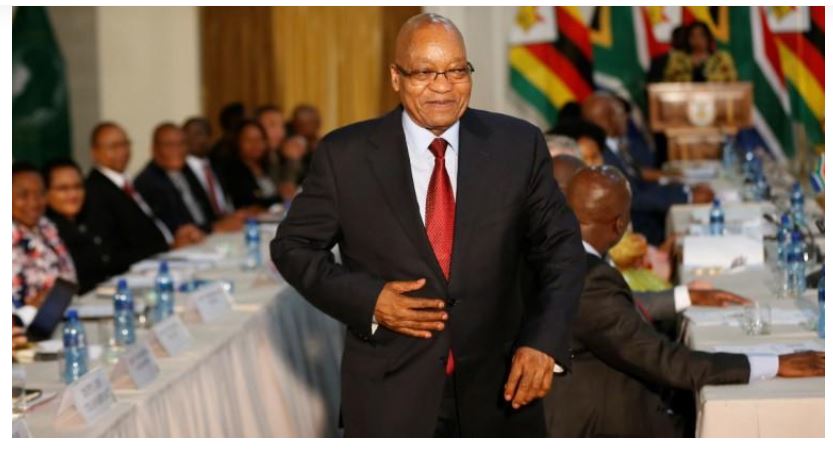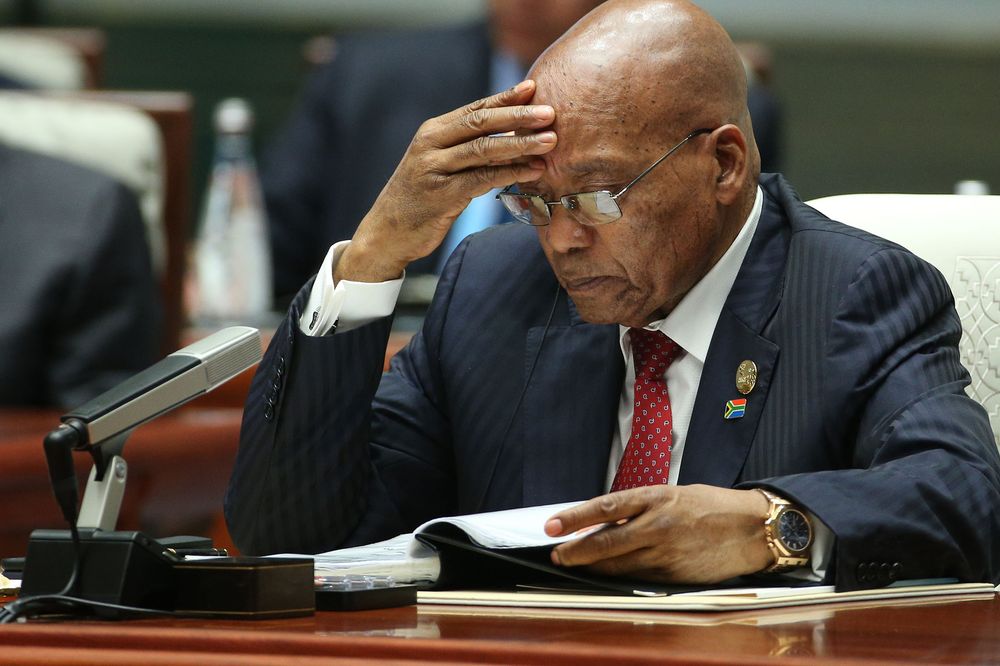
Court challenges, allegations of vote rigging and outbreaks of violence — South Africa’s ruling party is in disarray less than three weeks before it’s scheduled to choose a new leader to replace President Jacob Zuma.
The struggle for power has spawned such disorder that some analysts question whether the African National Congress can hold a credible election at the Dec. 16-20 conference in Johannesburg in what’s shaping up to be the most hotly contested internal vote since Nelson Mandela led the party to power in 1994.
Leadership disputes have ended up in court in three of the nine provinces — KwaZulu-Natal, the Free State and North West — while the party’s national officials stepped in to avert a lawsuit challenging the outcome of its internal election in the Eastern Cape province.
On Wednesday, the high court in Bloemfontein in the Free State ordered that the province’s conference, which was due to take place this weekend, can’t be held until 29 branch meetings are rerun. The court said 29 of these meetings were irregular and unconstitutional.
Unofficial branch-nomination tallies obtained by Bloomberg, the Johannesburg-based Mail & Guardian newspaper and the Institute of Race Relations show Ramaphosa with the edge in the race, but the numbers aren’t conclusive. Some bigger branches are entitled to send more than one delegate to the conference, and there’s no guarantee they’ll vote as they were instructed. Branch delegates will account for 90 percent of the conference’s 5,240 total.
The electoral process will probably be disputed if the official branch-nomination results show that Ramaphosa commanded a decisive lead and Dlamini-Zuma, Zuma’s preferred candidate, still wins the top post, said Darias Jonker, an Africa analyst at risk-advisory firm Eurasia Group.
“The likelihood of disruptions and delays at the conference is growing,” Jonker said by email. If there is a dispute, the conference could be suspended until the first quarter of 2018, he said.
Smooth Election
ANC Secretary-General Gwede Mantashe insists the conference will go ahead as planned and the election will run smoothly.
“If there are court cases we will deal with them,” Mantashe told reporters in Pretoria, the capital, on Nov. 14. “We can’t plan the national conference on the basis of court cases. It must be a success. Anything that detracts us from succeeding, we will deal with it.”
Postponing the conference may leave Zuma as ANC president at a time when his administration has been rocked by repeated scandals and unnerve investors who want greater political and policy clarity. A delay would also heighten the risk of further downgrades to the country’s credit rating and place pressure on the rand and the nation’s bonds.
Zuma’s continued presence in office may undermine the ANC’s preparations for the 2019 elections. Disgruntlement with his rule saw support for the party fall to an all-time low of 54 percent in last year’s municipal elections. That allowed opposition coalitions to win control of Pretoria and the economic hub of Johannesburg in Gauteng, the nation’s richest province.
Given the bitter divisions, the ANC may struggle to pick a leadership that can unify the party and reconnect with voters.
“There is a risk that the conference won’t be credible,” Ongama Mtimka, a political science lecturer at the Nelson Mandela Metropolitan University in the southern city of Port Elizabeth, said by phone. “It’s not certain that the loser will accept the outcome and remain within in the ANC.”

